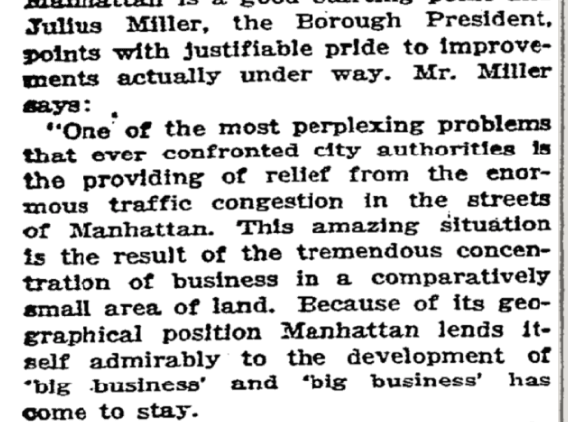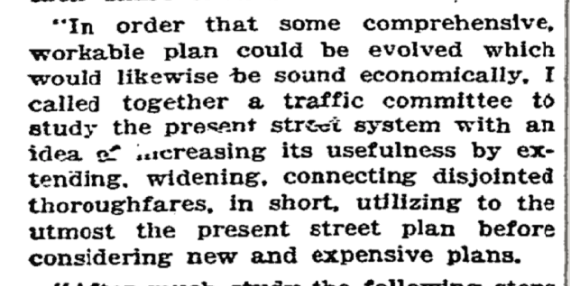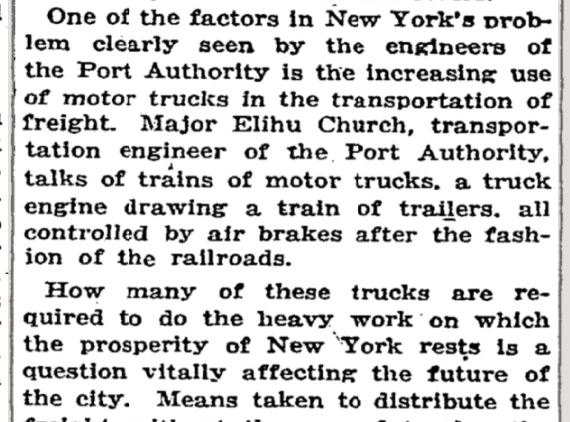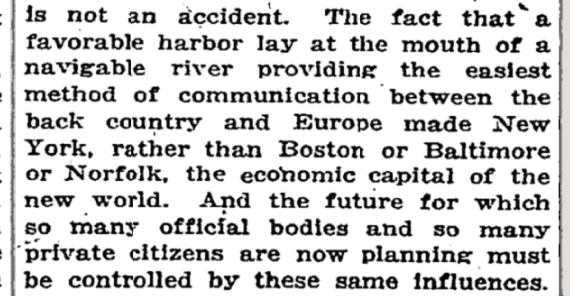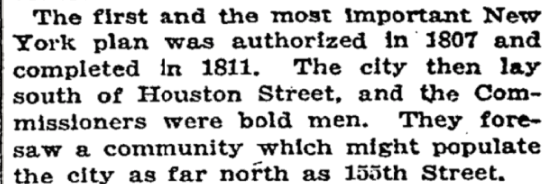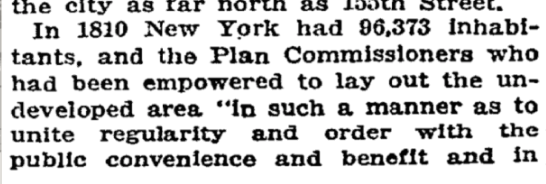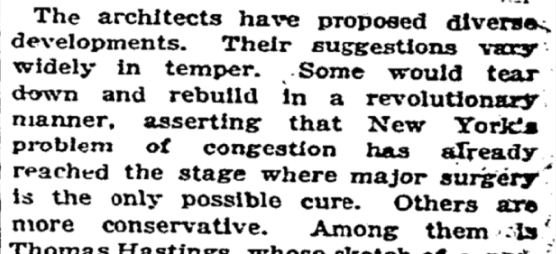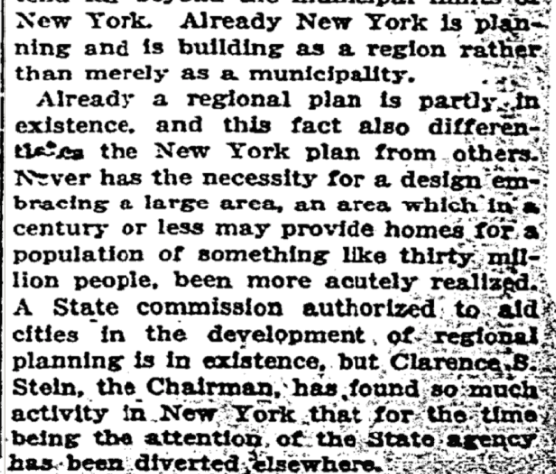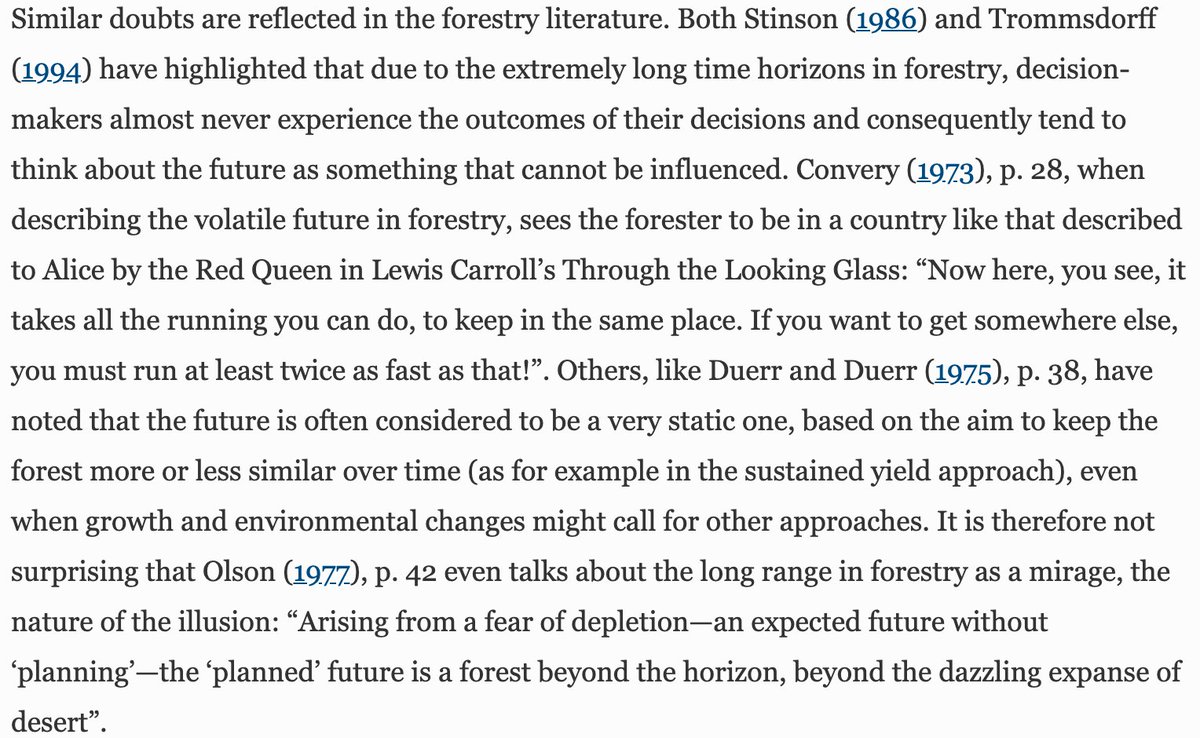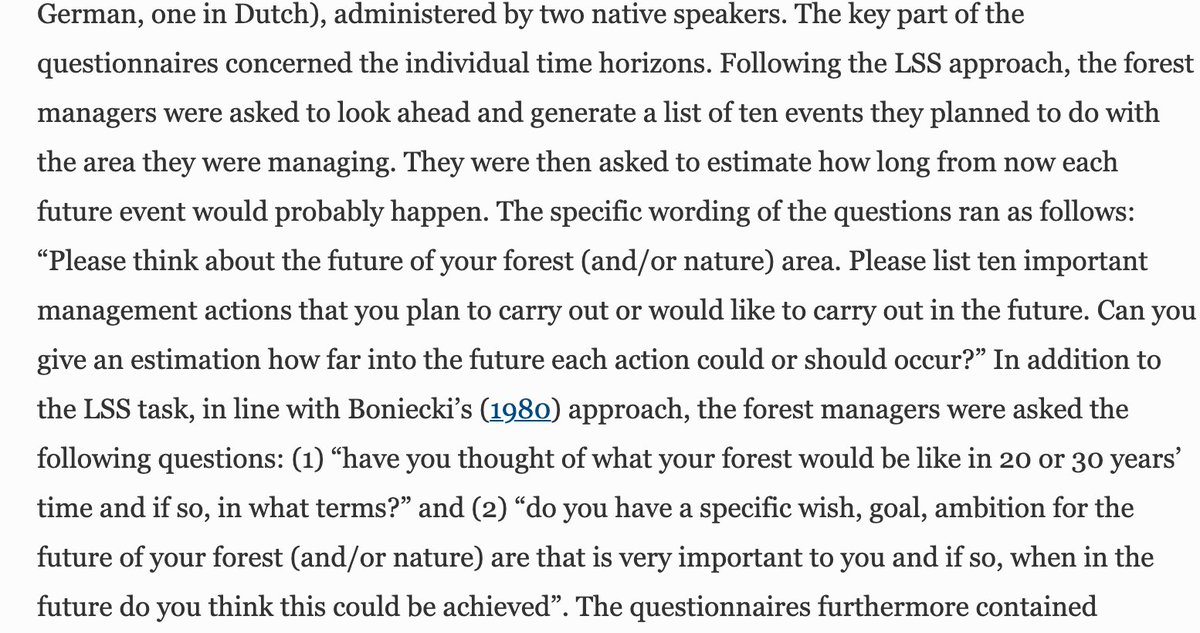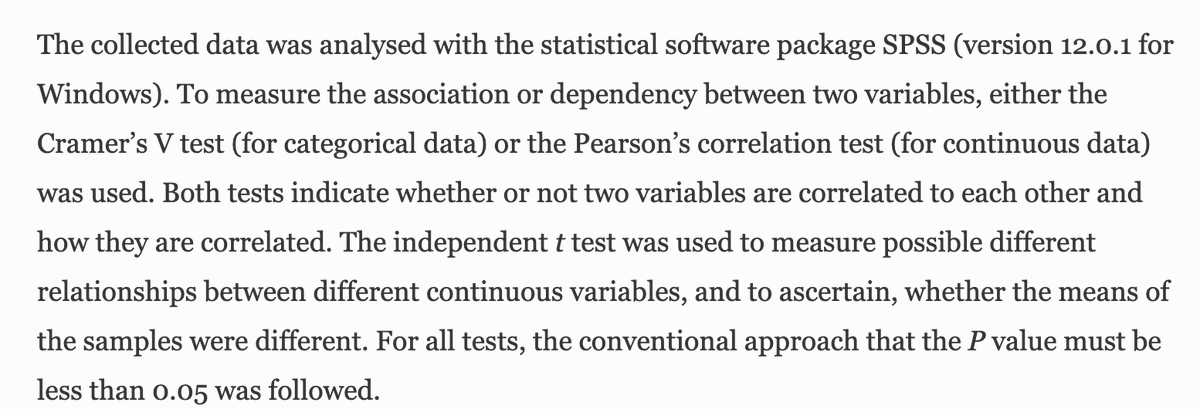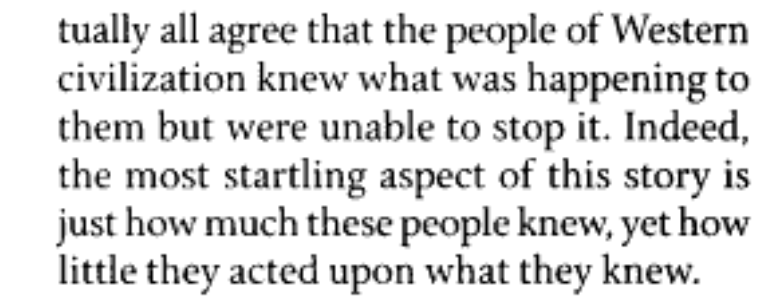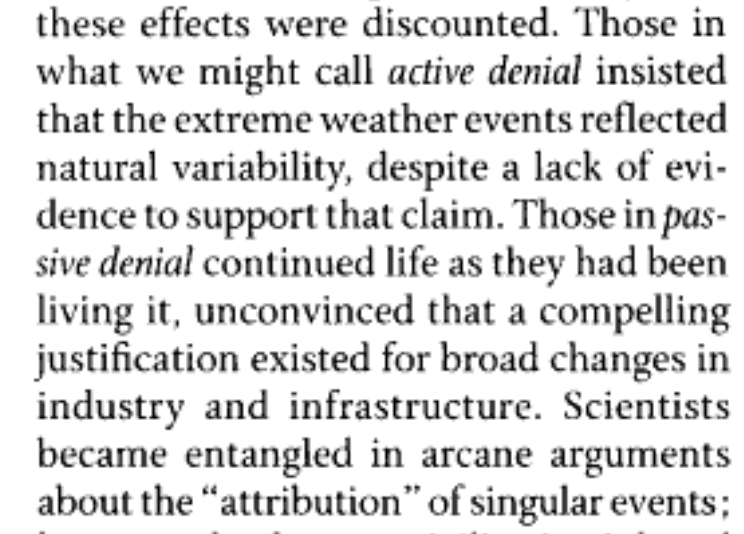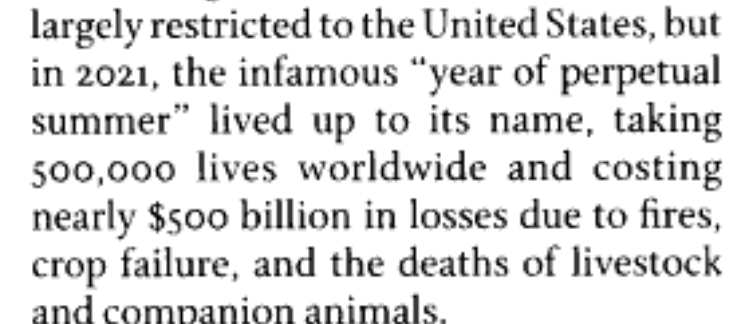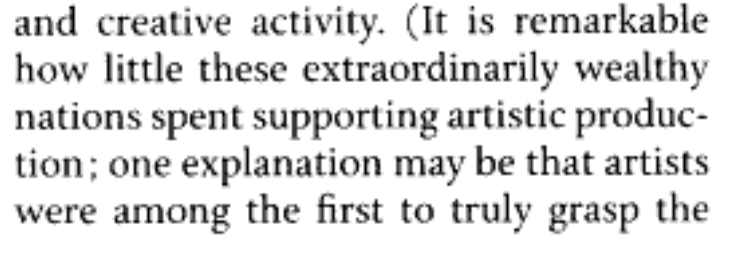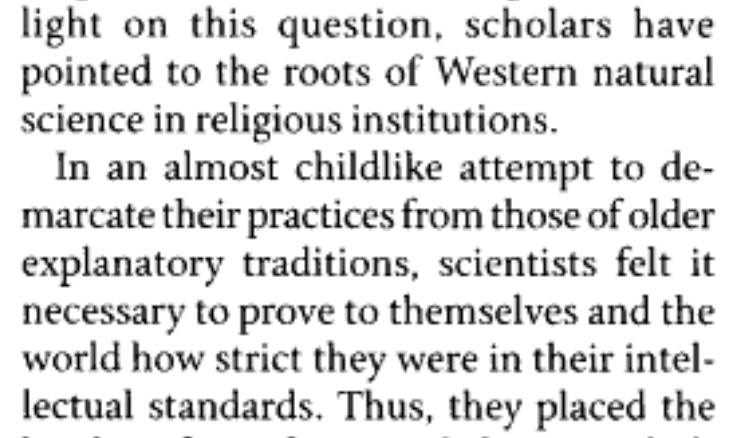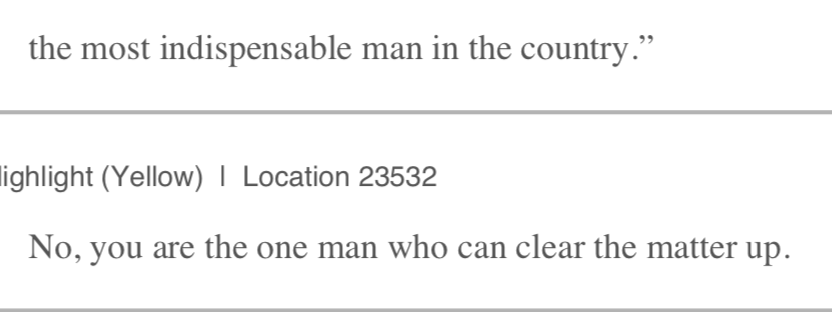
Module 6 -the final set of readings!- is about long-term predictions and planning. (For anyone new here, I'm live-tweeting the lecture prep for my course, Predictive Fictions, which I'm teaching for the first time this session at @ASU_SFIS. Full syllabus: malkaolder.wordpress.com/2020/12/17/syl…)
Thread for Module 1
https://twitter.com/m_older/status/1342436831003029509?s=20
Thread for Module 2:
https://twitter.com/m_older/status/1344257701493280769?s=20
thread for Module 3
https://twitter.com/m_older/status/1345713153368322051?s=20
Thread for Module 4
https://twitter.com/m_older/status/1346789038628499457?s=20
Aaaaaand thread for Module 5
https://twitter.com/m_older/status/1349381810640326656?s=20
For anyone who wants to follow along informally, @knkeegan has been opening discords for discussions, hashtag #MalkaGTD598
So! Long-term predictions. Most of what we've talked about are relatively short-term predictions, from next-day (meteorology) to maybe next-year (political polling), along with some indeterminate (disasters). It seemed important to touch on long-term predictions.
I had some vague idea about a Chinese 50-year plan from, oh maybe 50ish years ago, the sort of thing that I would have heard of as a student in the sense of, "look at how short-term US thinking is". But when I started to research, I couldn't find one (the past is also fiction).
But fifty year plans are, and have been, a thing, and I did find a few to talk about. Before I get into those though, I thought it would be interesting to start with looking at a long-term prediction from well in the past and see how that worked out.
It's actually amazing to think about. Imagine, in 1971, trying to predict the world of 2021. Anything looking that far ahead should very obviously be a fiction. And yet, it's something we keep doing, for fun and for profit and for some obscure sense of comfort, I guess.
I found this article from the @nytimes, November 2, 1924, while I was researching 50-year plans (sub-head: Facilities outlined for population of 10 millions in 50 years). timesmachine.nytimes.com/timesmachine/1…
According to this site, the population of New York City in 1974 was nearly 16 million macrotrends.net/cities/23083/n…
"...Detroit and Cleveland are moving in Titan fashion to make life within their confines a more comfortable and satisfying experience." NYC feeling threatened a bit in 1924
aha this article is hilarious. And I would argue that today there's a pretty strong sense of "community consciousness" around NYC. Obviously with lots of sub-city levels - there's a different community consciousness for the bronx, etc, but there is a collective idea of it 

( just for context: I am not a NYer, I have never lived in NYC although I've visited plenty, I am not a particular fan of NYC although there are things I like about it, I think people who claim it's the "greatest city in the world" mostly have never lived in any other megacity)
Look on its works and despair! (really, really threatened. what was going ON in the midwest at this point? industry, I guess) 

the right hand not knowing what the left hand is doing is not usually supposed to be a *good* thing, old-timey journalist/propagandist. 

(this being twitter someone is probably going to hunt down the improbably social media-savvy centenarian former paperboy who remembers the writer of this piece to yell at me for calling them old-timey)
not sure if this is proto-AI city, proto-hive mind entity city, urban landscape taking on aspects of nature, but👀 @Annaleen @nkjemisin @ArkadyMartine 

NEVER BEEN CHRISTENED.
Now I'm not sure whether there was actually a plan or not. I probably should have read this article more closely before I assigned it in the first place.
Now I'm not sure whether there was actually a plan or not. I probably should have read this article more closely before I assigned it in the first place.

In my defense, the typeface is really small.
also never mind the writer of this, I want to find the editor
This article is almost as interesting on federalism/interlocking/cascading jurisdictions as on predictions 
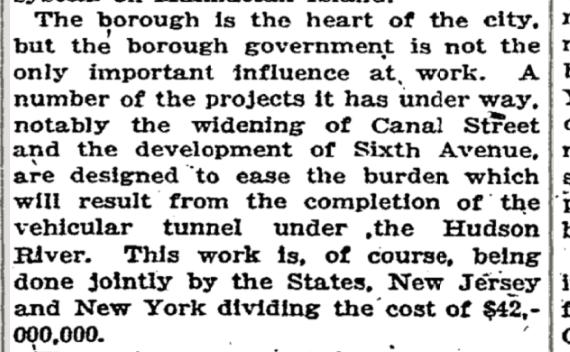
Aha! Look at this, right here 👇🏽: it is the speculative fiction created in the plans, *regardless of their actual details* that expand the possibility of the future 
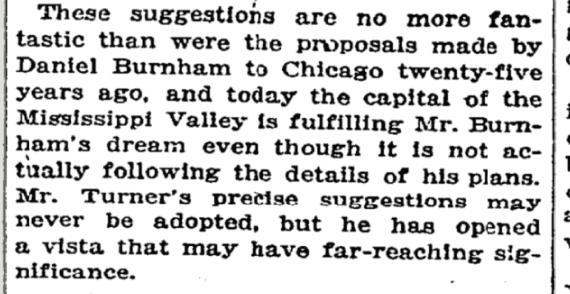
Police Commissioner -> responsible for traffic -> traffic main issue in city -> cop becomes town planner??? 

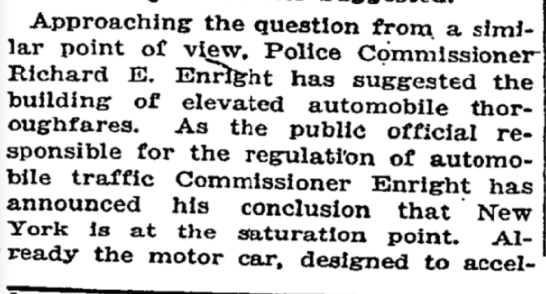

I'm reading this as: rich people are plotting to keep the city exclusive (except for the people who clean, garden, cook, and nanny for them, who can have substandard housing therein). but maybe it means something else? (trying to keep an open mind) 

you'd think this would have made them aim a little higher in their own population growth estimate for fifty years later 

kinda wish that peach orchard was still there.
"little patience with new fangled notions concerning town planning"
"wonders"
"little patience with new fangled notions concerning town planning"
"wonders"
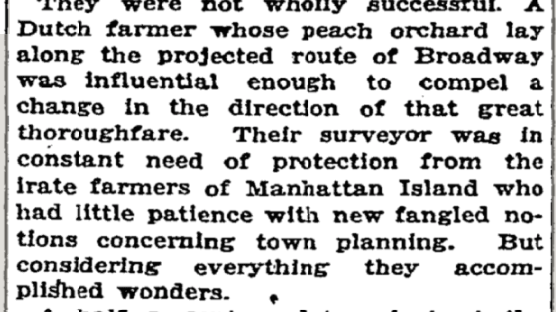
how does this compare with modern city plans? @oldplanman ? 
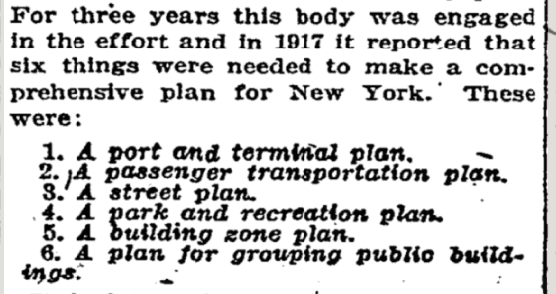
note how they say "attempts to predict", as opposed to today, when population growth is a calculated estimate (or sometimes several according to different scenarios) 
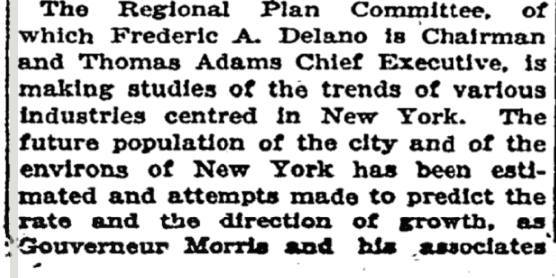
well that article was weirder and more wonderful than I expected!
I'm pairing that article on New York's future vision from the past with a couple of more current articles about far future planning. The first is a brief news article about a fifty year plan in the UAE, few details but an emphasis on citizen engagement and SMBs/entrepreneurship.
The second is Roseline M. Achieng’. “Can We Speak of African Agency?: APRM and Africa’s Agenda 2063.” African sociological review 18.1 (2014): 49–64, and again is largely about the process of creating the plan, or approving it.
An immediate question here is the value of planning so far into the future. The UAE's 50 yp will take it to the centenary of its establishment. I saw a history exhibit in UAE once, and the change from 1971 to now is enormous. How to imagine that degree of change into the future?
When you talk about all of Africa....even more of an enormous undertaking of the imagination. And yet both these places and many more - some US municipalities, eg - spend time and money on such extremely long-term plans.
Of course there's an opposing argument to be made that shorter-term planning is problematic because it doesn't match timeframe of a lot of our commitments. If you're building a transport system or electricity grid you expect to last 50 yrs, better at least try to look ahead.
Similarly, NOT looking far-future gets us into situations with people in power comfortably ignoring the impact of climate change (while in some cases shrieking warnings about the deficit - see module on economization)
But with these 50 yps the rhetorical value is a major part of their purpose. It's not just the "look we are thinking about the future" of Clarke's fantasy documents, although that's probably an element. But these plans are about big-picture visions and goals; they function
at least partially on the idea that imagining where you want to be, what kind of society you want to live in, is a crucial step to getting there, even if you accept that uncertain future events & tech mean the WAY you work towards it may change dramatically along the way.
As a science fiction writer, I like this idea; it suggests my creations have an impact in the world. I talk a lot about a variant, Speculative Resistance, that imagining different futures allows us to resist the oppressions of the present.
The emphasis on procedure in both these articles suggests another angle: the construction of these plans models, or performs, versions of citizen engagement if not democracy.
I wanted to show a different perspective on timeframes in planning, so the next article is Hoogstra, M.A., Schanz, H. Future orientation and planning in forestry: a comparison of forest managers’ planning horizons in Germany and the Netherlands. Eur J Forest Res 128, 1–11 (2009)
Of course, any article involving German forestry makes me think of SEEING LIKE A STATE, and it wouldn't be impossible to stretch Scott's metaphor, or causal analogy, here.
But I also don't want to overreach on that. State-building or guiding and forestry are both long-term efforts; but it may be useful to look at the specifics of forestry without tying them to something else. 


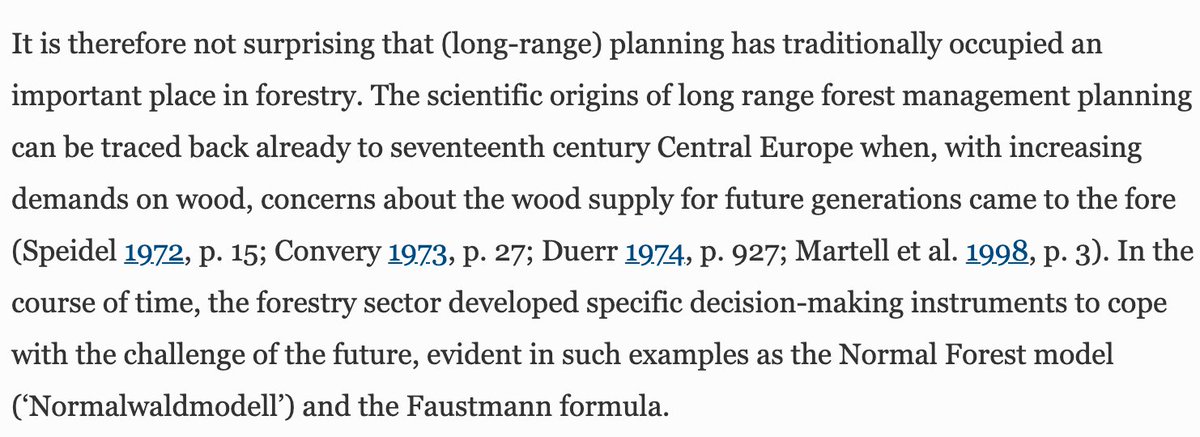
So we have a sub-culture that has grown up believing in the necessity and possibility of generational planning 
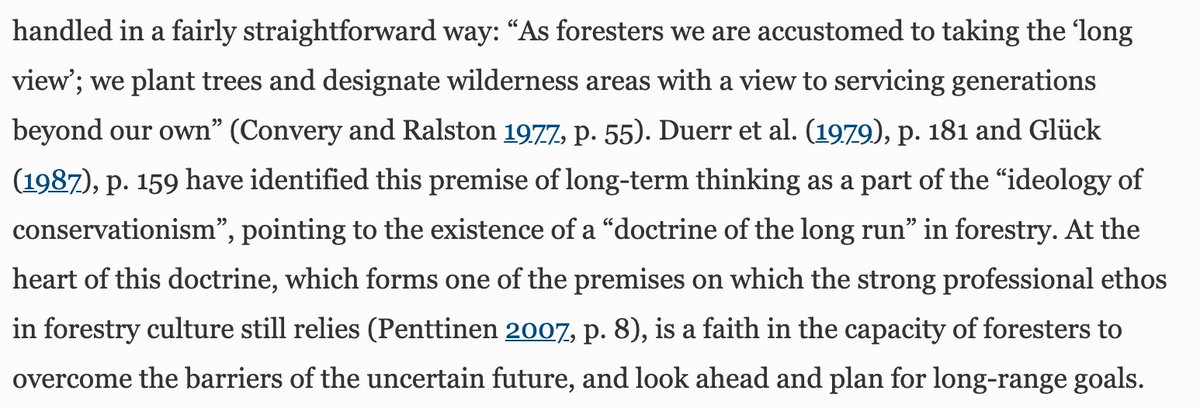
Let's unpack it a bit: there's the contradiction of taking actions whose results take too long for you to see them and therefore finding it hard to accept that you affect the future; there's the effort to keep the future static, somehow controlled and understandable;
there's the impossible distance of that future. How do these insights relate to the more human fifty-year plans we looked at earlier?
this is such a key point. @phiala suggested another article that does a meta-analysis on timeframes, but a/ it's still in pre-print and b/ I hate to change the syllabus after the course has started, so maybe next year. 
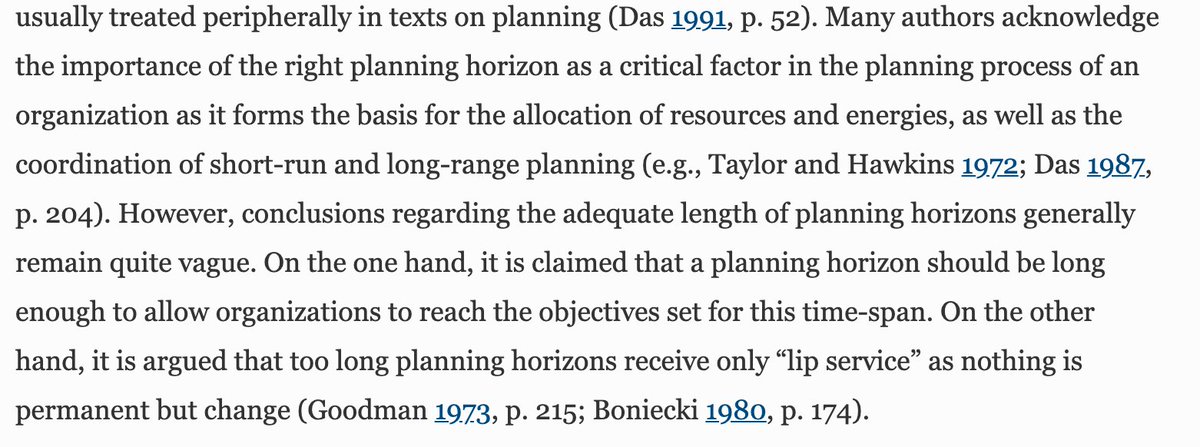
(aside: I really hate the phrase "changed history" because whatever it was did not change history)
planning in theory, improvising in practice
(note that this doesn't necessarily obviate the usefulness of planning, at least not completely)
(note that this doesn't necessarily obviate the usefulness of planning, at least not completely)
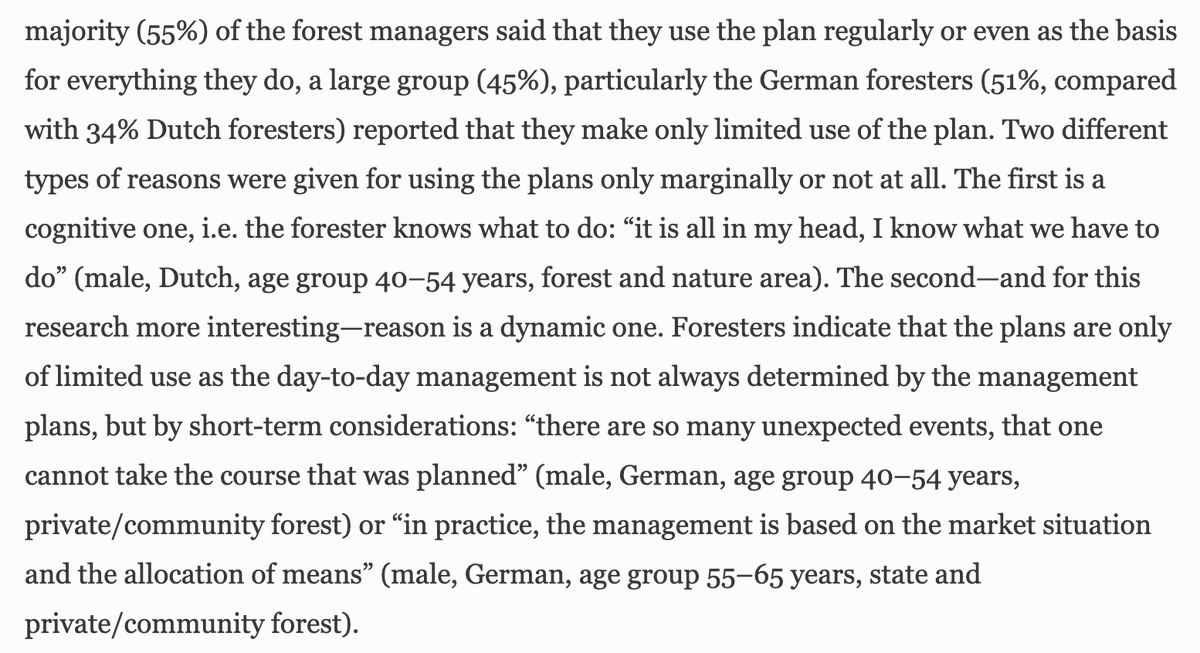
again, this is not necessarily a bad thing, or does not necessarily mean the plans are bad. one thing I've seen theorized in disaster planning is general planning + room and training to deviate as needed 

Why science fiction is important #SpeculativeResistance 

The science fiction short story for this week is Martin Amis's "The Janitor on Mars". I have mixed feelings about assigning this story because of the sexism etc, but it is very effective in sketching the limits of our perceptions in predicting the future.
Next we have @NaomiOreskes @ErikMConway “The Collapse of Western Civilization: A View from the Future.” Daedalus, vol. 142, no. 1, 2013, pp. 40–58, which seemed an appropriate way to end a class about the intersection of science fiction and other ways of imagining the future.
Because look at this author's note (notice how it's somewhat reminiscent of the Pushcart War technique: 

(I jest. We need to be stringent with science fiction too, just differently stringent. There are many science fiction books that I would NOT want to form the basis of policy decisions or future planning).
fantasy documents, fantasy holidays, fantasy agencies, fantasy that governments are acting to protect our futures 
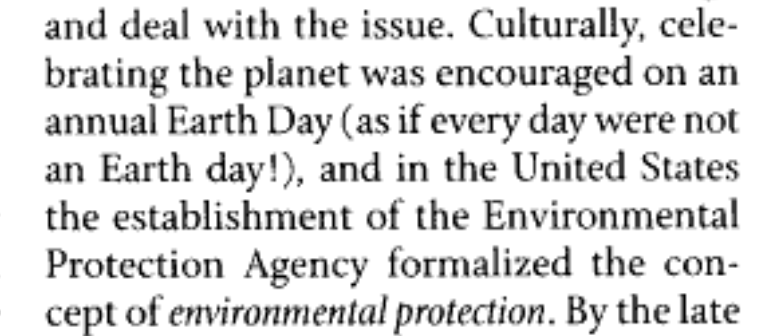
I hope we're learning from this class that feeding the desire for certainty is far more dangerous than learning to live with some uncertainty. 
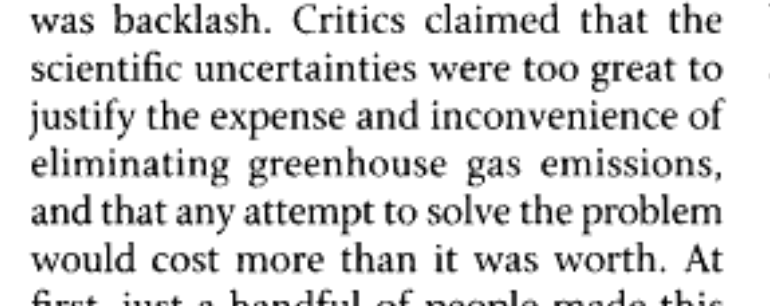
what I find interesting is how it's the language and sometimes techniques of the enlightenment that are used to justify the denialism: that lack of certainty thing, for example; the "fair and balanced" comemierdería for another. we need a new paradigm. 
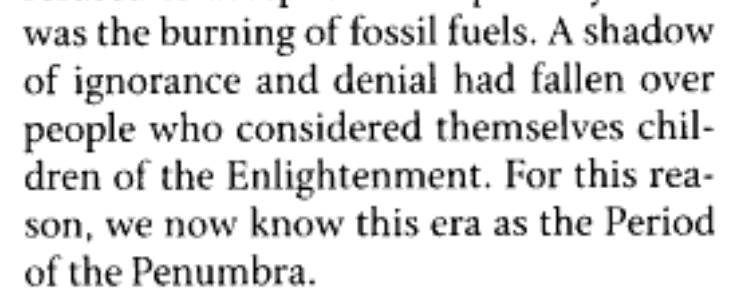
This is so laughable and so true. How, HOW can scientists be accused of trying to "increase financial support" but "Americans for Economic Future" or whatever are out there running TV ads for more coal mining? 
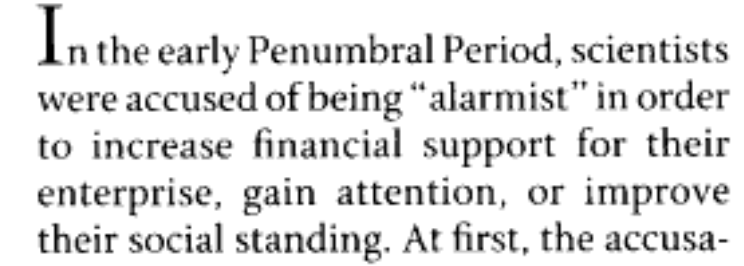
tell me again about how this is not a dystopia
(we're still in the 'past', 'true' part of the article here)
(we're still in the 'past', 'true' part of the article here)
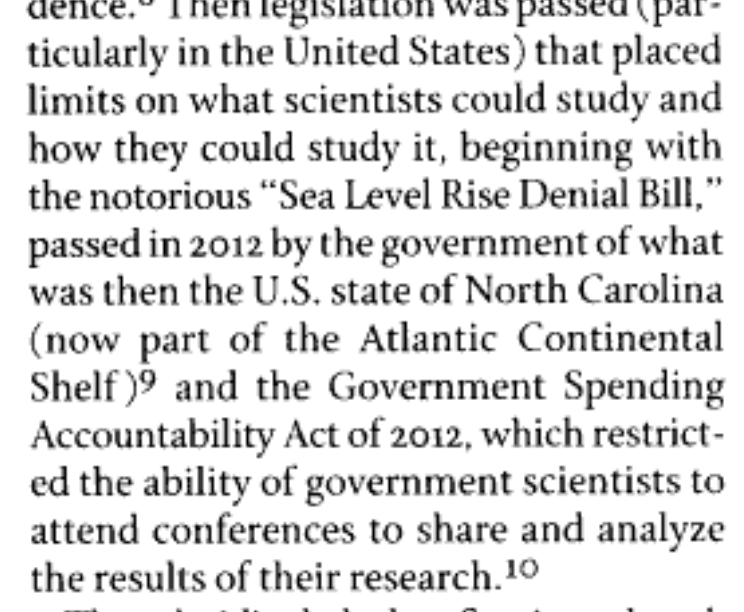
so here we're in the science-fictional part of the article but 1) is it that different from where we would be if the election had gone the other way?
2) will the place we're in now, which admits the threat but flinches from any radical change, make a noticeable difference?
2) will the place we're in now, which admits the threat but flinches from any radical change, make a noticeable difference?
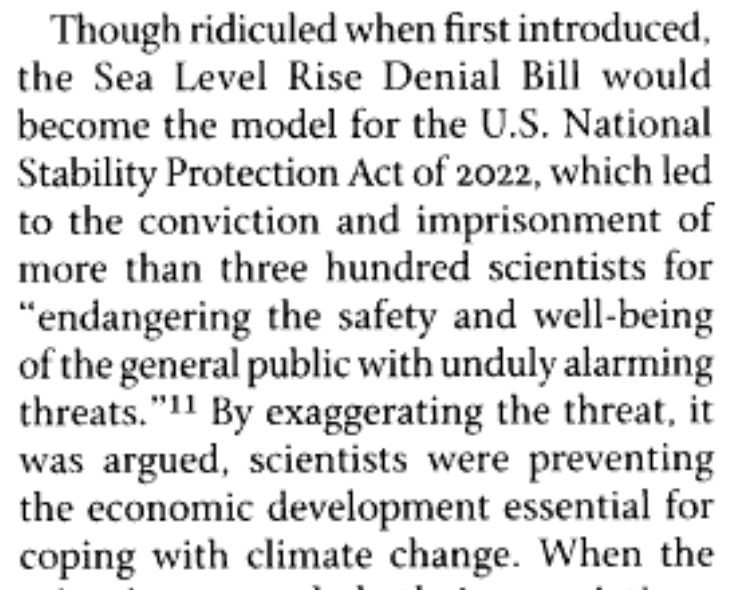
• • •
Missing some Tweet in this thread? You can try to
force a refresh


